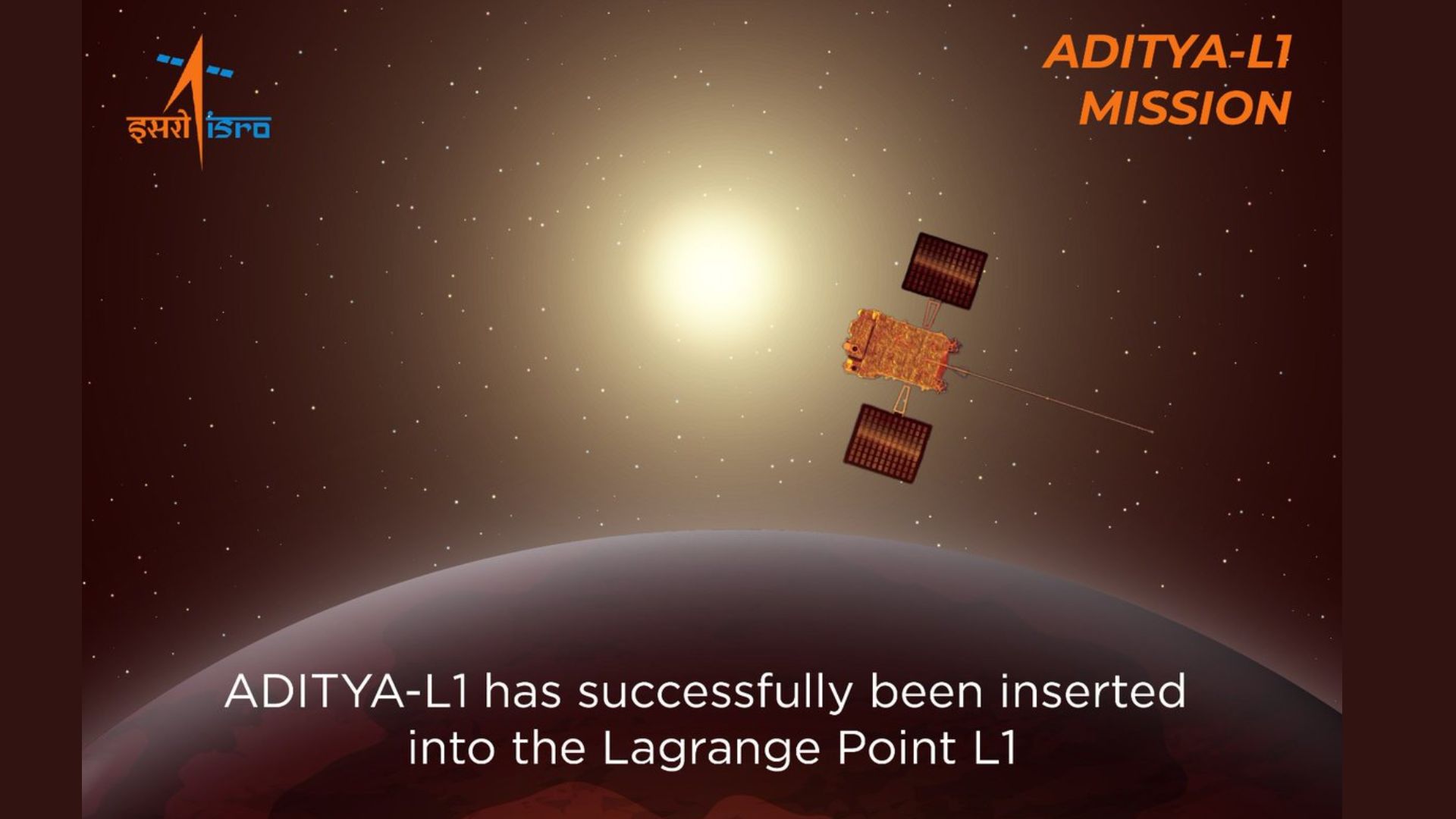The Indian Space Research Organization (ISRO) has verified the Aditya-L1 spacecraft’s safe arrival at Lagrange Point L1, located 1.5 million kilometers from Earth, marking a noteworthy accomplishment. An important first step has been taken for India’s first space-based solar observatory, which aims to unravel the secrets of the Sun, with the successful injection into its final orbit.
The Aditya-L1 spacecraft is set to enter a halo orbit around Lagrange Point 1 (L1) in the Sun-Earth system, strategically positioned 1.5 million kilometers away from our planet. This critical location, representing about one percent of the Earth-Sun distance, provides an ideal vantage point for observing the Sun continuously.
ISRO officials have outlined plans for periodic maneuvers to maintain the spacecraft in its intended orbit. These maneuvers are crucial for ensuring that Aditya-L1 remains in a prime position to utilize its seven specialized payloads. These payloads are equipped to observe and study various layers of the Sun, including the photosphere, chromosphere, and the outermost layer known as the corona. The observations will utilize a range of electromagnetic and particle detectors, contributing to a comprehensive understanding of solar activities.
The Aditya-L1 mission is a testament to India’s growing prowess in space exploration and solar research. The spacecraft’s strategic positioning at L1 allows for constant surveillance of the Sun, enabling scientists to monitor solar phenomena such as solar flares and solar wind, and their potential impact on Earth.
As ISRO enters the phase of performing periodic maneuvers, the Aditya-L1 mission is poised to unravel critical insights into the dynamics of the Sun, contributing significantly to solar science and enhancing India’s standing in space exploration.
















